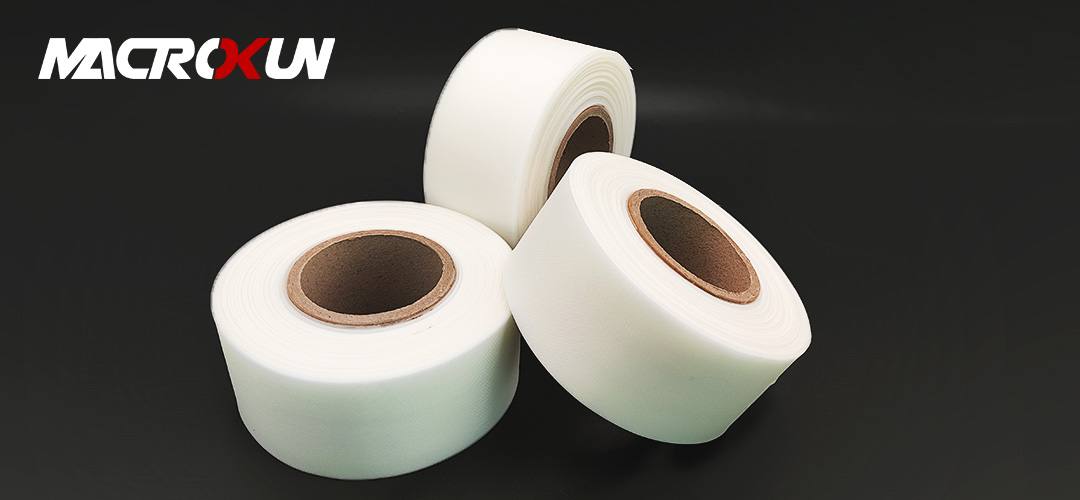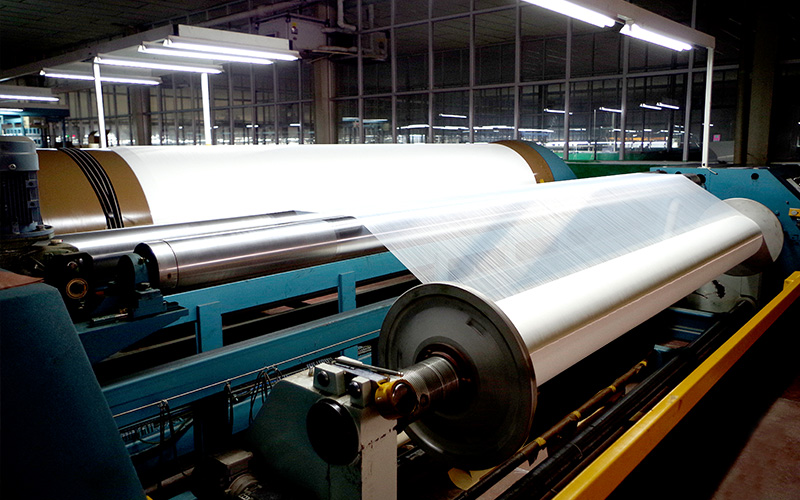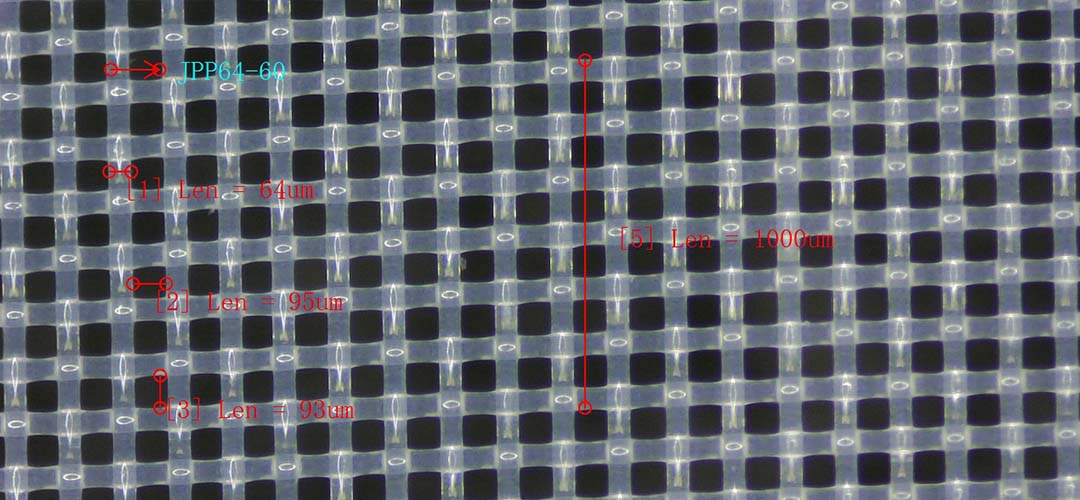Nylon monofilament mesh is a versatile material that is widely used in various industries for its durability, flexibility, and high tensile strength. In this comprehensive buyers’ guide, we will explore the benefits of using nylon monofilament mesh and why it is a popular choice for many applications.

One of the key benefits of nylon monofilament mesh is its durability. Nylon is a synthetic material that is known for its strength and resilience, making it ideal for applications that require a material that can withstand heavy use and harsh conditions. Nylon monofilament mesh is resistant to abrasion, chemicals, and UV exposure, making it a long-lasting and reliable option for a wide range of applications.
In addition to its durability, nylon monofilament mesh is also highly flexible. This flexibility allows the mesh to conform to the shape of the object it is covering, providing a secure and snug fit. This makes nylon monofilament mesh an ideal choice for applications where a tight and secure fit is essential, such as in filtration systems, screen printing, and industrial sieving.

Another benefit of using nylon monofilament mesh is its high tensile strength. Nylon is a strong and resilient material that can withstand high levels of tension without breaking or stretching. This makes nylon monofilament mesh an ideal choice for applications that require a material that can support heavy loads and withstand high levels of stress, such as in conveyor belts, safety nets, and industrial strainers.
Furthermore, nylon monofilament mesh is lightweight and easy to work with, making it a versatile material that can be easily cut, sewn, and manipulated to fit a wide range of applications. This ease of use makes nylon monofilament mesh a popular choice for manufacturers and designers who require a material that is easy to work with and can be customized to meet their specific needs.
Additionally, nylon monofilament mesh is available in a wide range of mesh sizes and configurations, making it suitable for a variety of applications. Whether you need a fine mesh for precision filtration or a larger mesh for industrial sieving, nylon monofilament mesh can be tailored to meet your specific requirements.
In conclusion, nylon monofilament mesh offers a range of benefits that make it a popular choice for many applications. Its durability, flexibility, high tensile strength, and ease of use make it an ideal material for a wide range of industries, from manufacturing and construction to agriculture and healthcare. If you are looking for a reliable and versatile material that can meet your specific needs, consider nylon monofilament mesh for your next project.
When it comes to choosing the right nylon monofilament mesh for your specific needs, there are several factors to consider. From the mesh size to the thread diameter, each aspect plays a crucial role in determining the performance and durability of the mesh. In this comprehensive buyers’ guide, we will walk you through the key considerations to keep in mind when selecting a nylon monofilament mesh.
One of the first things to consider when choosing a nylon monofilament mesh is the mesh size. Mesh size refers to the number of openings per linear inch in the mesh. The smaller the mesh size, the finer the mesh will be. If you are looking to filter out smaller particles, a mesh with a smaller size would be more suitable. On the other hand, if you need a mesh for larger particles, a mesh with a larger size would be more appropriate.
Another important factor to consider is the thread diameter of the nylon monofilament mesh. The thread diameter refers to the thickness of the individual threads that make up the mesh. A thicker thread diameter will result in a stronger and more durable mesh, while a thinner thread diameter will provide better visibility and airflow. Depending on your specific application, you will need to determine the ideal thread diameter for your nylon monofilament mesh.

In addition to mesh size and thread diameter, it is also important to consider the weave pattern of the nylon monofilament mesh. The weave pattern refers to the way in which the threads are interlaced to form the mesh. Common weave patterns include plain weave, twill weave, and Dutch weave. Each weave pattern offers different characteristics in terms of strength, flexibility, and filtration capabilities. By understanding the different weave patterns available, you can choose the one that best suits your needs.
Furthermore, it is essential to consider the material of the nylon monofilament mesh. Nylon is a popular choice for monofilament mesh due to its high strength, durability, and resistance to abrasion. However, there are different types of nylon available, each with its own unique properties. For example, nylon 6 is known for its high tensile strength, while nylon 6/6 offers better resistance to chemicals and heat. By selecting the right type of nylon for your mesh, you can ensure optimal performance and longevity.
When choosing a nylon monofilament mesh, it is also important to consider the finishing options available. Finishing options such as heat setting, calendaring, and coating can enhance the performance and durability of the mesh. Heat setting helps to stabilize the mesh and prevent shrinkage, while calendaring improves the flatness and smoothness of the mesh. Coating can provide additional protection against abrasion, chemicals, and UV exposure. By selecting the appropriate finishing options, you can customize your nylon monofilament mesh to meet your specific requirements.
In conclusion, choosing the right nylon monofilament mesh requires careful consideration of various factors such as mesh size, thread diameter, weave pattern, material, and finishing options. By understanding these key considerations and their impact on the performance of the mesh, you can make an informed decision that meets your specific needs. Whether you need a mesh for filtration, separation, or reinforcement, selecting the right nylon monofilament mesh is essential for achieving optimal results.
Nylon monofilament mesh is a popular choice for a variety of applications, including filtration, screen printing, and industrial sieving. To ensure the longevity and effectiveness of your nylon monofilament mesh, proper maintenance is essential. In this comprehensive buyers’ guide, we will provide you with some key maintenance tips to help you get the most out of your nylon monofilament mesh.
One of the most important maintenance tips for nylon monofilament mesh is regular cleaning. Over time, dirt, debris, and other contaminants can build up on the mesh, reducing its effectiveness. To clean your nylon monofilament mesh, simply rinse it with warm water and a mild detergent. Avoid using harsh chemicals or abrasive scrubbers, as these can damage the mesh and reduce its lifespan.
In addition to regular cleaning, it is also important to inspect your nylon monofilament mesh regularly for any signs of wear or damage. Look for tears, holes, or fraying along the edges of the mesh. If you notice any damage, it is important to repair or replace the mesh as soon as possible to prevent further deterioration.
Another important maintenance tip for nylon monofilament mesh is proper storage. When not in use, store your mesh in a cool, dry place away from direct sunlight. Avoid folding or creasing the mesh, as this can cause permanent damage. Instead, roll the mesh up and store it in a protective case or container to keep it safe and secure.
It is also important to handle your nylon monofilament mesh with care. Avoid pulling or stretching the mesh too tightly, as this can cause it to warp or lose its shape. When installing the mesh, be gentle and take care to avoid any sharp edges or rough surfaces that could cause damage.
If you are using your nylon monofilament mesh for screen printing, it is important to clean the mesh after each use to prevent ink buildup. Use a gentle cleaning solution and a soft brush to remove any excess ink from the mesh. Allow the mesh to dry completely before storing it to prevent mold or mildew growth.
In addition to these maintenance tips, it is also important to follow the manufacturer’s guidelines for care and maintenance of your nylon monofilament mesh. Different types of mesh may require different cleaning methods or storage techniques, so be sure to consult the manufacturer’s instructions for the best results.
By following these maintenance tips, you can ensure that your nylon monofilament mesh remains in top condition and continues to perform effectively for years to come. Proper care and maintenance are essential for maximizing the lifespan and performance of your nylon monofilament mesh, so be sure to incorporate these tips into your regular maintenance routine. With proper care, your nylon monofilament mesh will continue to provide reliable and consistent performance for all of your filtration, screen printing, and sieving needs.
Nylon monofilament mesh is a versatile material that finds applications in a wide range of industries. Its durability, flexibility, and resistance to chemicals make it an ideal choice for various purposes. In this article, we will explore the different industries where nylon monofilament mesh is commonly used and the specific applications within each sector.
One of the primary industries that extensively uses nylon monofilament mesh is the textile industry. In textile manufacturing, nylon monofilament mesh is used for screen printing on fabrics. The mesh allows for precise and detailed designs to be printed on textiles, making it a popular choice for creating intricate patterns and graphics on clothing and other textile products.
Another industry that relies heavily on nylon monofilament mesh is the food and beverage industry. In this sector, the mesh is commonly used for filtration purposes. Nylon monofilament mesh filters are used to remove impurities and particles from liquids such as juices, wines, and oils. The mesh‘s fine pores ensure that only the desired liquid passes through, resulting in a clean and pure final product.
The pharmaceutical industry also makes use of nylon monofilament mesh for filtration applications. In pharmaceutical manufacturing, the mesh is used to filter out contaminants and particles from medications and other pharmaceutical products. The mesh‘s high tensile strength and chemical resistance make it an ideal choice for ensuring the purity and quality of pharmaceutical products.
In the automotive industry, nylon monofilament mesh is used for various applications, including air and fuel filtration. The mesh is used in air filters to remove dust, dirt, and other particles from the air entering the engine, ensuring optimal performance and efficiency. In fuel filters, nylon monofilament mesh is used to remove impurities and contaminants from the fuel, preventing damage to the engine and ensuring smooth operation.
The electronics industry also makes use of nylon monofilament mesh for various applications. In electronic manufacturing, the mesh is used for screen printing on circuit boards and other electronic components. The mesh‘s fine pores and high precision allow for accurate and detailed printing, ensuring the quality and reliability of electronic products.
In the medical industry, nylon monofilament mesh is commonly used for surgical implants and medical devices. The mesh is biocompatible and can be safely implanted in the body for various medical procedures, such as hernia repair and tissue reinforcement. Its durability and flexibility make it an ideal choice for medical applications where strength and compatibility are essential.
Overall, nylon monofilament mesh is a versatile material that finds applications in a wide range of industries. Its durability, flexibility, and chemical resistance make it an ideal choice for various purposes, from screen printing in the textile industry to filtration in the food and beverage industry. Whether used for air filtration in automotive applications or surgical implants in the medical industry, nylon monofilament mesh continues to be a valuable material in various sectors.
Pre: Nylon Mesh Explained: Applications and Benefits for Everyday Use
Next: Wire Mesh Nylon: Combining Strength with Lightweight Design

MACROKUN has established long-term and stable cooperative relations with many transportation companies such as China Post, DHL, FEDEX, USPS, UPS, etc. Of course, MACROKUN can also provide air and sea transportation. The powerful logistics system enables all MACROKUN'S Printing Mesh, Filter Mesh and Filter Bags and so on to be easily and efficiently transported to any place. For quotes and inquiries, please email our sales team.





